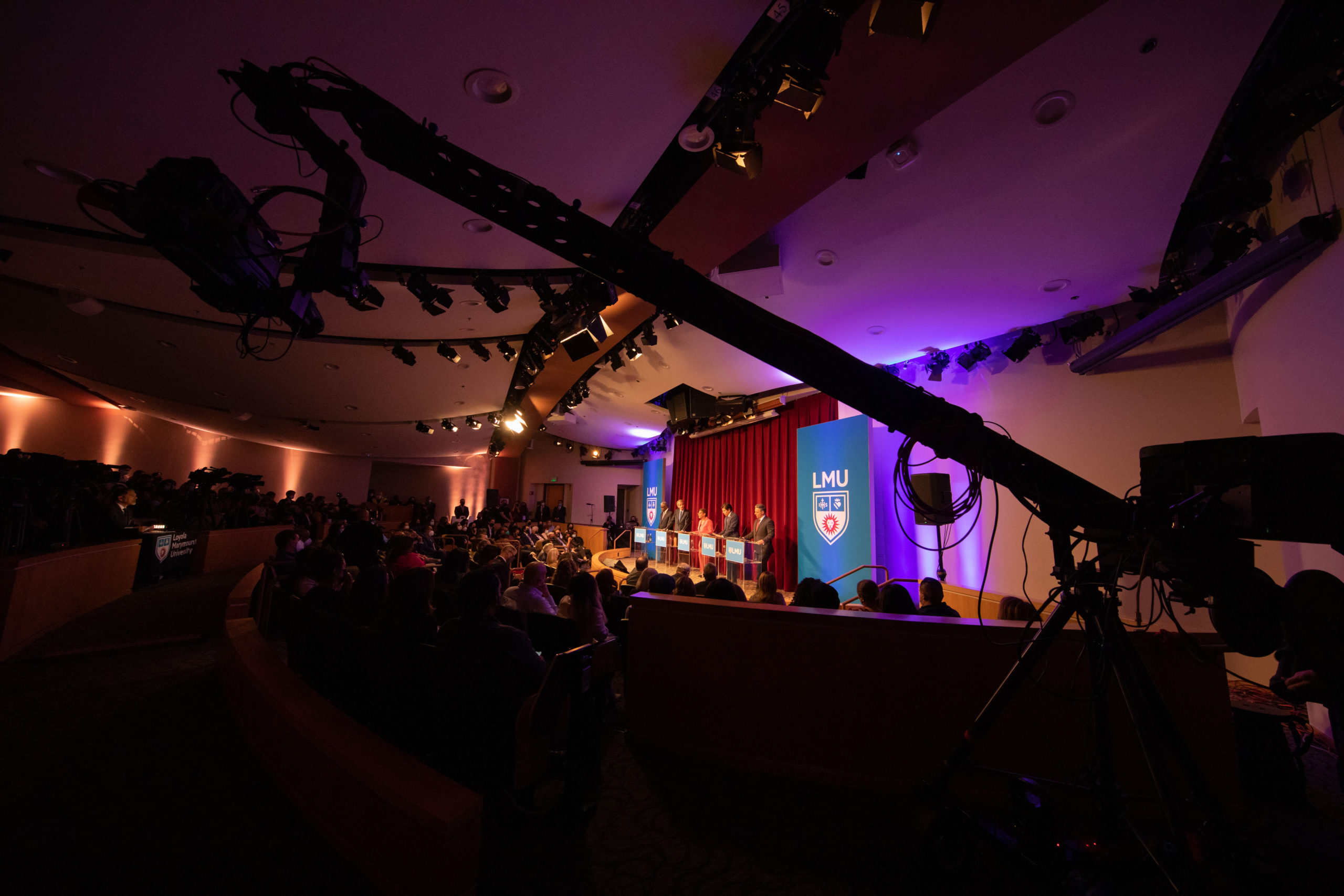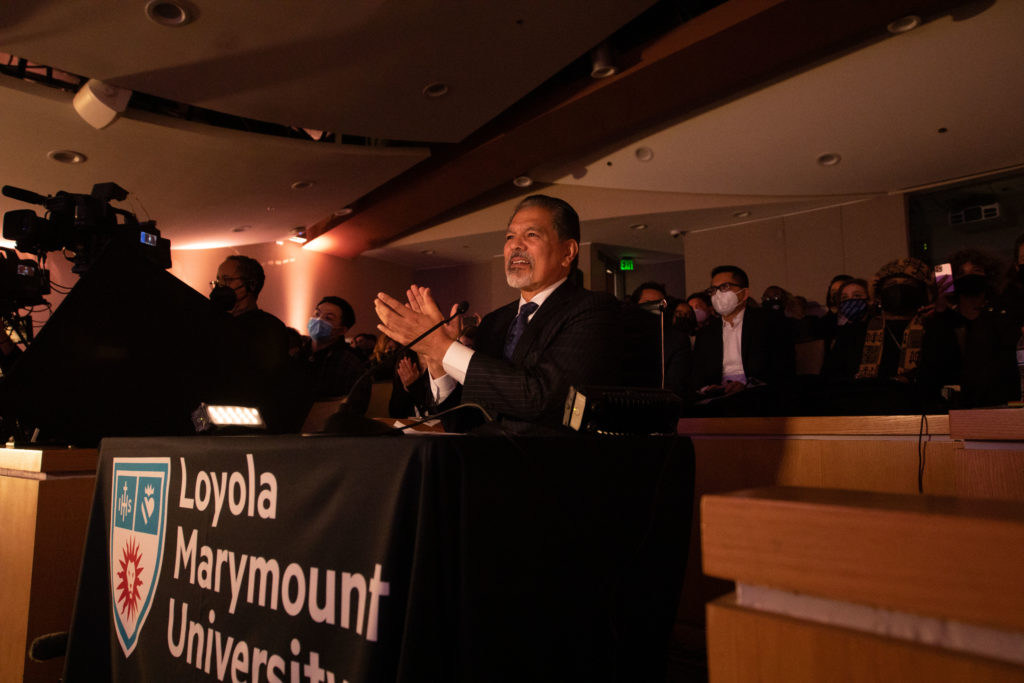
For the first time since 2013, the City of Los Angeles is holding a mayoral election without an incumbent. Given this opportunity, it’s no surprise that a collection of well-credentialed candidates entered the race.
Five of those veteran public servants took the stage at LMU’s Hilton Center for Business on Tuesday, February 22 for the first mayoral debate of the election season. (Los Angeles’ primary is held June 7, and the run-off between the two highest vote getters is Nov. 8.)
The candidates at the LMU debate were: U.S. Representative Karen Bass, L.A. City Councilmembers Joe Buscaino and Kevin de León, L.A. City Attorney Mike Feuer, and former Metropolitan Transportation Authority board member Mel Wilson. (Developer Rick Caruso declined to participate.)
The debate was spearheaded by LMU’s Thomas and Dorothy Leavey Center for the Study of Los Angeles. Fernando Guerra, StudyLA’s founding director and a professor of political science and Chicana/o and Latina/o studies, served as moderator. LMU President Timothy Law Snyder delivered opening remarks, and students and community members comprised the audience. The debate streamed live on Spectrum News 1, where afterwards, Jessica Levinson from Loyola Law School and Guerra offered analysis and observations.

The questions that Guerra posed to the candidates – about topics such as homelessness and affordable housing, public health and the pandemic, policing and civic discourse – were culled in part from submissions from many of the 600 or so people who registered to attend. Guerra also incorporated data from StudyLA’s soon-to-be-released 2022 Los Angeles Public Opinion Survey.
It was far from coincidence that this debate was held at LMU. The campus has previously hosted local and national debates, and this forum flowed from a pair of LMU Bellarmine College of Liberal Arts courses taught, respectively, by Guerra and Brianne Gilbert, managing director for StudyLA and a senior lecturer in the Departments of Political Science and International Relations and Urban and Environmental Studies. Guerra has taught, “Politics of Los Angeles,” since he first arrived at LMU. Last semester, the course featured videoconference appearances by ten of the city’s leading political and law enforcement figures – including the debate cast. Gilbert teaches a political internships course, where students often work with those same or other prominent politicos.
“We talk with the students about civil discourse and the importance of civic engagement,” Gilbert said, “but for them to experience that firsthand, that the election is not an ‘out there’ kind of thing, it’s ‘in here,’ is really crucial.” Added Gilbert: “This is an opportunity for students to engage with the candidates, and to see the candidates in their own element.”
Ruth Alcantara `24, a political science and Spanish major from Granada Hills, is currently taking the politics and internship courses. Alcantara has spent the semester working for the Feuer campaign. “I thought this would be a great opportunity for me to learn more about how to take the skills I am learning and apply them to my everyday life,” she said.
Alcantara hopes to continue working in local politics, either doing policy work or as a campaign volunteer. “I have learned how to use PDI [Political Data Intelligence], help on endorsement surveys and assist in phone banking,” she said. “I have learned so much about the behind the scenes work on a campaign.”
And the debate? “Having a behind the scenes look at the debate was incredible,” Alcantara said. “It was an amazing experience and I am honored to have played a small part in the success of the event. I loved attending the reception afterwards and meeting all the candidates and seeing how they interact. So grateful to have done this and I look forward to continue interning for Mike!”
Sophia Flores `22 is a political science major from Pico Rivera, and a student researcher at StudyLA. Flores was involved in the logistical planning for the debate, including as liaison to various student organizations. Flores took both the internship course and the politics course in Fall 2021. “I’m very interested in local politics,” Flores said, “so to have the opportunity to talk to them and hear their perspective, and hear their journey to obtaining their position was incredibly insightful.”
That exchange of ideas is a cornerstone of the intellectual life of LMU. “Civic dialogue goes both ways,” Guerra said. “Not only us talking to them, not only us going out and interning and doing community service, but also bringing the community to campus.”
By Jeremy Rosenberg
Los Angeles mayoral candidates visit “Politics of Los Angeles” course and share their views:



